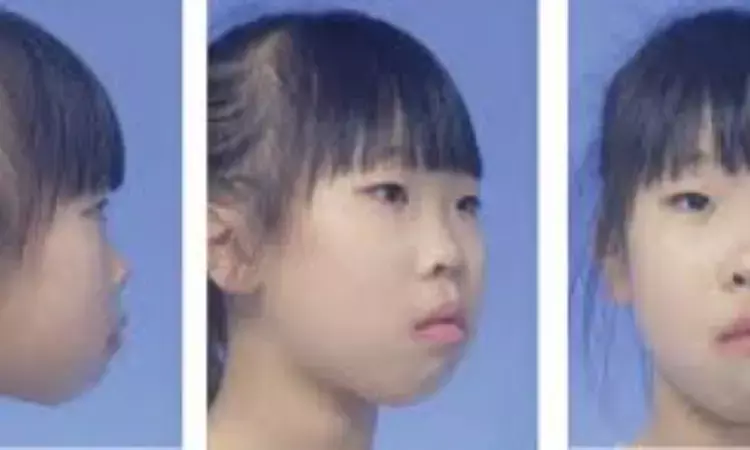- Home
- Medical news & Guidelines
- Anesthesiology
- Cardiology and CTVS
- Critical Care
- Dentistry
- Dermatology
- Diabetes and Endocrinology
- ENT
- Gastroenterology
- Medicine
- Nephrology
- Neurology
- Obstretics-Gynaecology
- Oncology
- Ophthalmology
- Orthopaedics
- Pediatrics-Neonatology
- Psychiatry
- Pulmonology
- Radiology
- Surgery
- Urology
- Laboratory Medicine
- Diet
- Nursing
- Paramedical
- Physiotherapy
- Health news
- Fact Check
- Bone Health Fact Check
- Brain Health Fact Check
- Cancer Related Fact Check
- Child Care Fact Check
- Dental and oral health fact check
- Diabetes and metabolic health fact check
- Diet and Nutrition Fact Check
- Eye and ENT Care Fact Check
- Fitness fact check
- Gut health fact check
- Heart health fact check
- Kidney health fact check
- Medical education fact check
- Men's health fact check
- Respiratory fact check
- Skin and hair care fact check
- Vaccine and Immunization fact check
- Women's health fact check
- AYUSH
- State News
- Andaman and Nicobar Islands
- Andhra Pradesh
- Arunachal Pradesh
- Assam
- Bihar
- Chandigarh
- Chattisgarh
- Dadra and Nagar Haveli
- Daman and Diu
- Delhi
- Goa
- Gujarat
- Haryana
- Himachal Pradesh
- Jammu & Kashmir
- Jharkhand
- Karnataka
- Kerala
- Ladakh
- Lakshadweep
- Madhya Pradesh
- Maharashtra
- Manipur
- Meghalaya
- Mizoram
- Nagaland
- Odisha
- Puducherry
- Punjab
- Rajasthan
- Sikkim
- Tamil Nadu
- Telangana
- Tripura
- Uttar Pradesh
- Uttrakhand
- West Bengal
- Medical Education
- Industry
Inherited growth hormone deficiency reduces maxillary arch greater than mandibular arch: Study

Inherited severe isolated growth hormone deficiency reduces maxillary arch to a greater degree than the mandibular arch, according to a recent study published in the Growth Hormone & IGF Research.
The growth of the dental arches depends on GH and insulin-like growth factor type 1 (IGF1), but the consequences of GH deficiency (GHD) on their growth are still unclear, probably due to the acquired etiology of GHD in most described series, often associated with additional pituitary deficits (thyrotrophic, corticotrophic and gonadotrophic hormones), and imperfections of related replacement therapies, which may affect the dental arch growth. To avoid these limitations, we took advantage of a unique cohort of subjects with isolated GH deficiency (IGHD) due the same mutation in the GH releasing hormone receptor gene, living with very low serum GH and low to undetectable circulating IGF1 levels. Our purpose was to analyze the dimensions of maxillary and mandibular dental arches.
The study included a total of 22 adult IGHD (15 untreated and 7 previously partially treated with GH) and 33 controls were enrolled in a cross-sectional study using the Ortho Insight 3D and MeshMixer software,
The Results of the study are as follows:
In untreated IGHD subjects all maxillary arch measures were smaller than controls, while among mandibular arches, only the mandibular canine width and the mandibular arch length were reduced. In partially GH treated subjects only the palate depth, the maxillary canine width, the maxillary and mandibular arch lengths remained smaller than controls.
Thus, the researchers concluded that IGHD reduces the growth of maxillary arch to a greater degree than the mandibular arch, suggesting different control of superior and inferior dental arches. GH treatment increases some of these measures.
Reference:
A study named, "Dental arches in inherited severe isolated growth hormone deficiency" by Rafaela S.Girão et al. published in the Growth Hormone & IGF Research.
https://www.sciencedirect.com/science/article/abs/pii/S1096637422000016
Dr. Shravani Dali has completed her BDS from Pravara institute of medical sciences, loni. Following which she extensively worked in the healthcare sector for 2+ years. She has been actively involved in writing blogs in field of health and wellness. Currently she is pursuing her Masters of public health-health administration from Tata institute of social sciences. She can be contacted at editorial@medicaldialogues.in.
Dr Kamal Kant Kohli-MBBS, DTCD- a chest specialist with more than 30 years of practice and a flair for writing clinical articles, Dr Kamal Kant Kohli joined Medical Dialogues as a Chief Editor of Medical News. Besides writing articles, as an editor, he proofreads and verifies all the medical content published on Medical Dialogues including those coming from journals, studies,medical conferences,guidelines etc. Email: drkohli@medicaldialogues.in. Contact no. 011-43720751


